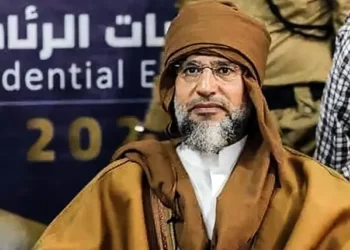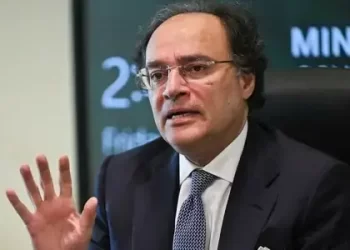The Ministerial Meeting between the Gulf Cooperation Council (GCC) and the United States was convened on Sept.25, 2024, in New York, co-chaired by US Secretary of State Antony J. Blinken and Sheikh Mohammed Bin Abdulrahman Al-Thani, Qatar’s Prime Minister and Minister of Foreign Affairs, current chairman of the GCC Ministerial Council, with foreign ministers from GCC member states and Secretary General Jasem Albudaiwi.
The Ministers underscored their shared commitment to the strategic partnership between the GCC and the United States and to building upon the achievements of previous ministerial meetings, including the most recent in Riyadh on April 29, 2024, and to strengthen consultation, coordination, and cooperation in all fields.
The Ministers conveyed their support for the establishment of an independent and viable Palestinian state living side by side in peace and security with Israel along the 1967 borders, with mutually agreed land swaps, in accordance with internationally recognised parameters and the 2002 Arab Peace Initiative.
The Ministers stressed the need for all civilians displaced after Oct.7 to return to their homes and reaffirmed their belief that a durable peace will be the foundation for a more integrated, stable, and prosperous region.
They stressed the need to intensify efforts to strengthen capacity, effectiveness, and transparency within the Palestinian Authority in accordance with agreed-upon mechanisms.
The Ministers affirmed there must be unified Palestinian-led governance in the Gaza Strip and the West Bank under the Palestinian Authority.
They recommitted themselves to supporting Palestinian aspirations of self-determination and ensuring that Palestinians are at the center of post-conflict governance and security in Gaza. The Ministers further expressed support for improving Palestinians’ quality of life, including through humanitarian assistance and efforts to accelerate Palestinian economic growth.
The Ministers expressed deep concern over rising levels of settler and other extremist violence against Palestinians in the West Bank and stressed the need for perpetrators to be held accountable.
They underscored the need to refrain from unilateral actions, including settlement expansions, which hinder the prospect of real peace and security for Israelis and Palestinians.
The Ministers noted the importance of protecting all holy sites and places of worship, as well as preserving the historic status quo of Jerusalem, recognising the special role of the Hashemite Kingdom of Jordan in this regard.
The Ministers committed to work together towards an immediate and sustainable ceasefire and release of hostages and detainees, consistent with the parameters laid out by US President Biden on May 31, 2024, and United Nations Security Council Resolution (UNSCR) 2735.
The Ministers called on parties to refrain from actions that would undermine efforts to achieve a diplomatic path forward.
They commended the mediation efforts in this regard by Qatar, Egypt, and the United States, as indicated by the Aug.8 joint statement on the urgency for a ceasefire and the release of hostages and detainees, and stressed the need for all parties to abide by international law, including, as applicable, international humanitarian law and obligations related to the protection of civilians.
They noted the generous support given by the GCC states and the United States to deliver aid to Gaza, emphasising the essential role the United Nations Relief and Works Agency for Palestine Refugees in the Near East (UNRWA) has played in the distribution of life-saving assistance.
The Ministers called for a surge of rapid, unhindered, and at-scale delivery of humanitarian assistance, including food, water, medical care, fuel, and shelter, and stressed the crucial need to restore basic services and ensure protection for humanitarian workers.
They underscored the need for all stakeholders to urgently facilitate humanitarian distribution networks across Gaza to deliver aid to alleviate the suffering of Palestinians and reiterated that all parties must ensure the safety and security of aid workers performing life-saving work and the effectiveness of humanitarian operations.
The Ministers reiterated the importance of Egypt and Israel reaching a deal for the re-opening of the Rafah Border Crossing to facilitate humanitarian aid into Gaza, and committed to continue working together on the governance, security, and early recovery aspects of Gaza.
The Ministers expressed their deep concern over recent escalation in the region and its negative impact on regional security and stability. They also stressed the importance of compliance with international law, including the United Nations Charter, and respect for the sovereignty, political independence, and territorial integrity of states.
The Ministers expressed their serious concern about the proliferation of advanced ballistic missiles and unmanned aerial vehicles (UAV) to threaten regional security and undermine international peace and security. The GCC and the United States reiterated their commitment to work together to address Iran’s regional activities, including threats to sovereignty and territorial integrity and providing support to non-state actors who seek to destabilise the region. They also expressed support for diplomatic efforts aimed to promote de-escalation.
The Ministers reaffirmed their commitment to ensuring freedom of navigation and maritime security in the region’s waterways and their determination to deter illegal actions by Houthis that threaten the lives and safety of seafarers, shipping lanes, international trade, and oil installations in the GCC states.









